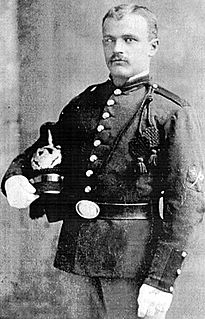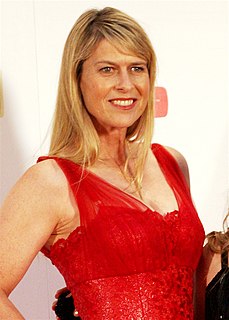A Quote by Pericles
For grief is felt not so much for the want of what we have never known, as for the loss of that to which we have been long accustomed.
Related Quotes
Grief is real because loss is real. Each grief has its own imprint, as distinctive and as unique as the person we lost. The pain of loss is so intense, so heartbreaking, because in loving we deeply connect with another human being, and grief is the reflection of the connection that has been lost. We think we want to avoid the grief, but really it is the pain of the loss we want to avoid. Grief is the healing process that ultimately brings us comfort in our pain.
Television has never known what to do with grief, which resists narrative: the dramas of grief are largely internal - for the bereaved, it is a chaotic, intense, episodic period, but the chaos is by and large subterranean, and easily appears static to the friendly onlooker who has absorbed the fact of loss and moved on.
Once a big loss has happened it is part of the picture forever. Not something you "get over." While each loss has felt specific, one thing I miss with each loss is entirely selfish, I miss the way a particular person saw me, understood me. But part of the challenge of being alive is to remain curious in any circumstance and this has helped me with grief. I want to feel all the contours and contradictions of living.
Grief is not just a series of events, stages, or timelines. Our society places enormous pressure on us to get over loss, to get through grief. But how long do you grieve for a husband of fifty years, a teenager killed in a car accident, a four-year-old child: a year? Five years? Forever? The loss happens in time, in fact in a moment, but its aftermath lasts a lifetime.
It is so natural for us to consider our presence as indispensable in the world, so long as we have much to do in it, that the wisdom of retiring wholly from employments in advanced life may be questioned. Certainly, he who does so is in danger of finding, before long, that he has only given up the occupation to which he has been accustomed, for the new business of calculating the period of his decease.
She smiled. She knew she was dying. But it did not matter any longer. She had known something which no human words could ever tell and she knew it now. She had been awaiting it and she felt it, as if it had been, as if she had lived it. Life had been, if only because she had known it could be, and she felt it now as a hymn without sound, deep under the little whole that dripped red drops into the snow, deeper than that from which the red drops came. A moment or an eternity- did it matter? Life, undefeated, existed and could exist. She smiled, her last smile, to so much that had been possible.
Never before have I written so long a letter. I'm afraid it is much too long to take your precious time. I can assure you that it would have been much shorter if I had been writing from a comfortable desk, but what else can one do when he is alone in a narrow jail cell, other than write long letters, think long thoughts, and pray long prayers?
If a man does not die of a wound, then it heals in some fashion, and so it is with loss. From the sharp pain of immediate berevement, both the Prince and I passed into the gray days of numb bewilderment and waiting. So grief has always seemed to me, a time of waiting not for the hurt to pass, but to become accustomed to it.











































